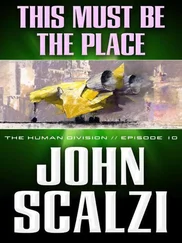I didn’t laugh at the pun.
“Despite the two of us being total strangers,” I said.
“Well, he has become quite familiar, though, hasn’t he? Though it’s one-sided.”
“I could say, ‘You are the spitting image of a Confederate soldier in the Ken Burns documentary about the Civil War.’”
“Yes, be direct. He might be interested. What’s the worst that could happen?”
“Well, I imagine. .”
“Let me put it differently. What would you like to happen?”
“I’d like him actually to be a Confederate soldier.”
“All right. All right, well. Yes, that would explain why he’s at an AA meeting. Post-traumatic stress disorder — from, say, Gettysburg. Didn’t you say that in the photograph he was a prisoner of war?”
“Poor guy. First he had to travel north to Vermont, then he had to wait until Alcoholics Anonymous came along. I think you’re humoring me.”
“On the contrary. I’m trying to find a way to talk about this.”
“Me too.”
“Why else, do you imagine, would you want him to be the real thing? Maybe because — and I’ve been watching it, too — the documentary is all photographs and the disconnected voices of the narrators. Yet you saw an actual physically present person outside the café, correct?”
My time was up. With the little I had left over from paying the Benidini Brothers, I paid for this session — things are done informally in Vermont — with an envelope of cash. That seemed fine all around.
Late one very hot morning, I was driving, Emma in her car seat, to see if the kingfisher had been returned to the millpond when, up ahead on Pekin Brook Road, I saw a car pulled over to the side, near the creek. The trunk was open, the spare tire was on the ground, and the man, who turned out to be my new therapist, was studying a sheet of paper, presumably to learn how to work the jack and lug wrench.
I pulled up behind his car, turned off the ignition, got out — Emma had dozed off — and said, “Hello, Dr. ____.”
“I’ve got a bad back,” he said. “Ruptured a disk some months ago. Would you mind?”
“Not at all, not at all. Glad to help.” I got the car jacked up, changed the tire, put the lug nuts on finger tight, lowered the car, fully tightened the nuts, and tossed the jack and the flat tire in the trunk. “That’s that,” I said. I didn’t mention that I was the least mechanically adept person I knew. Still, I could change a tire.
“Thank you. You weren’t by any chance heading over to Plainfield, were you? To look for your Confederate soldier?”
“Not today. But I think your idea is a good one. I’m going to follow up on it.”
“Make another appointment if you’re so inclined.”
Next, I stopped to watch Viiu Niiler and Chet Cole blow glass, shaping it into vases, plates, and decorative sun catchers. I sat on the steps of their studio and we had a conversation while they worked. Then I stopped in at Country Books, where I discovered that a friend of mine had sold to the proprietor, Ben Koenig, a rare two-volume set of the paintings of Matisse, with commentary by the French poet Louis Aragon. I had loaned these book to the friend a month earlier, because she had wanted to study Matisse’s paintings for inspiration for her pottery. I bought back the two volumes. A week or so later, Ben informed me that my friend had dropped by to “study” the Matisse volumes. “I trust you didn’t tell her I bought them,” I said. “She’d be embarrassed.” Yet I could see from the look on his face that Ben had told her; etiquette is different for different people.
I next stopped at Cabot Greenhouse and purchased six Japanese crabapple trees. While running errands at two general stores, a gas station, a hardware store, and Legarre’s Produce, I saw Lost Cat notices for Pemberton. I took my temperature about a dozen times during the day; it ran the gamut between 99 and 102. Now that I think about it, it must’ve looked odd to customers at Rainbow Sweets Café: here was a man with a piece of poppyseed cake and a cup of coffee on the table in front of him, reading a book of poems by W. S. Merwin with a thermometer in his mouth.
That evening, during dinner at Roy and Gabrielle’s, Jane jokingly said, “We’ve been getting along really well with our fevers.” Later, everyone watched the “War Is All Hell” episode.
“Hello.”
Silence a moment. Then my brother said, “I don’t hear the noise anymore. That well must’ve run you into the thousands. What’s the worry, since your last book made millions.”
“Sure, right, of course it did. A fledgling literary novel set in northern Manitoba. It was ten weeks on the northern Manitoba bestseller list.”
“Per word, what do you make, approximately, per word?”
“It doesn’t work that way.”
“That’s too bad. A dollar a word, say, would be pretty good. Though you’d have to learn to write long books, right?”
“Right.”
“There’s only an hour’s time difference between us now.”
“I take it you’re in the Midwest.”
“See, right there, what you just said. Very astute. You should write a detective novel. You’d probably make some real money. I’ve had certain experiences. I could be your ghostwriter, I think they call it.”
“No, a ghostwriter is someone who actually writes the whole book but remains anonymous. They put somebody else’s name on the cover.”
“That wouldn’t bother me.”
“Which way wouldn’t bother you — if you were the ghostwriter or you were the one taking credit?”
“Holy God in heaven, how does your wife put up with you more than an hour at a time? You have to dissect everything like it’s a frog in high school biology class. What a dunce. If there was a stool in the corner of Vermont, you should go sit on it with your dunce cap on.”
“It’s five A.M. and you called collect.”
I hung up and drove to the millpond.
On an evening in mid-August, the Confederate soldier and I were the only customers in the café in Plainfield. He was already sitting at a table when I arrived. He had his visored military cap on. It freaked me out, I have to admit, seeing him like that. I might have turned around and fled but for the fact that Sandra, the waitress, said, “Hey, I told this guy you’re a local writer. He’s a Civil War buff and I directed him over to Country Books.” She turned to the Confederate soldier. “Right?”
“That’s right,” he said.
I sat down at my table.
“This cap must look kinda stupid,” he said. “I’m trying to stay connected to my son.”
“How’s that?”
“Well, I’ve rented a place up Maple Hill here. My son is eighteen and his summer job is being a Civil War reenactor down in Virginia. He’s learning a lot and we get to talk about that. He’s dying once a day, twice on Saturdays and Sundays, for the tourists. But I think the job’s getting to him. It’s sinking in what actually went on during the Civil War. It’s getting to him.”
“I’ve been watching the Ken Burns documentary.”
“Me too.”
“I saw you earlier this summer, over in the church courtyard across the street.”
“Oh yeah? I go to meetings there.”
“I thought — this will sound crazy. I thought you were right out of the Ken Burns documentary. You bear a striking resemblance to a Confederate soldier in it.”
“The mind plays tricks, huh?”
“You aren’t kidding.”
“And then you find out my kid’s doing reenactments. Synchronicities or what?”
“Synchronicities. By the way, I’m Howard.”
I walked over and we shook hands. “St. John Holman,” he said.
I left the café without ordering a meal. Later, it was as if I knew the exact moment my fever broke. It was about one A.M. I was in the kitchen listening to the BBC. I took my temperature: normal. I took it again at two A.M. and right after waking at six-thirty A.M.: normal.
Читать дальше












